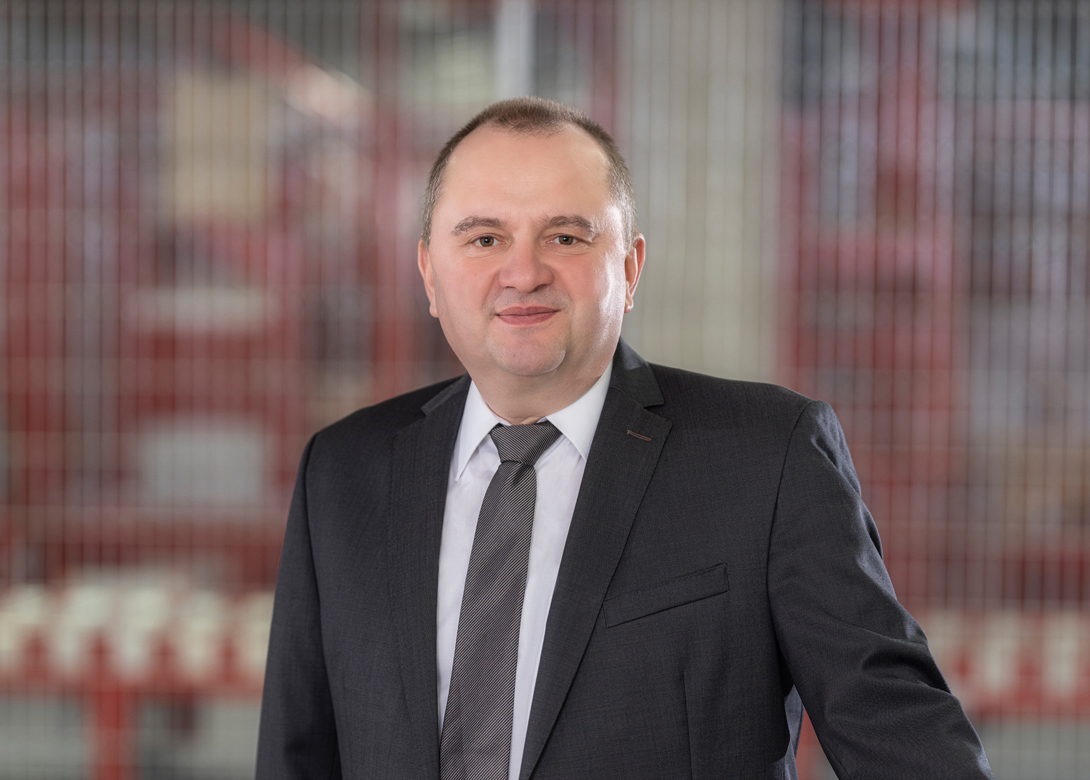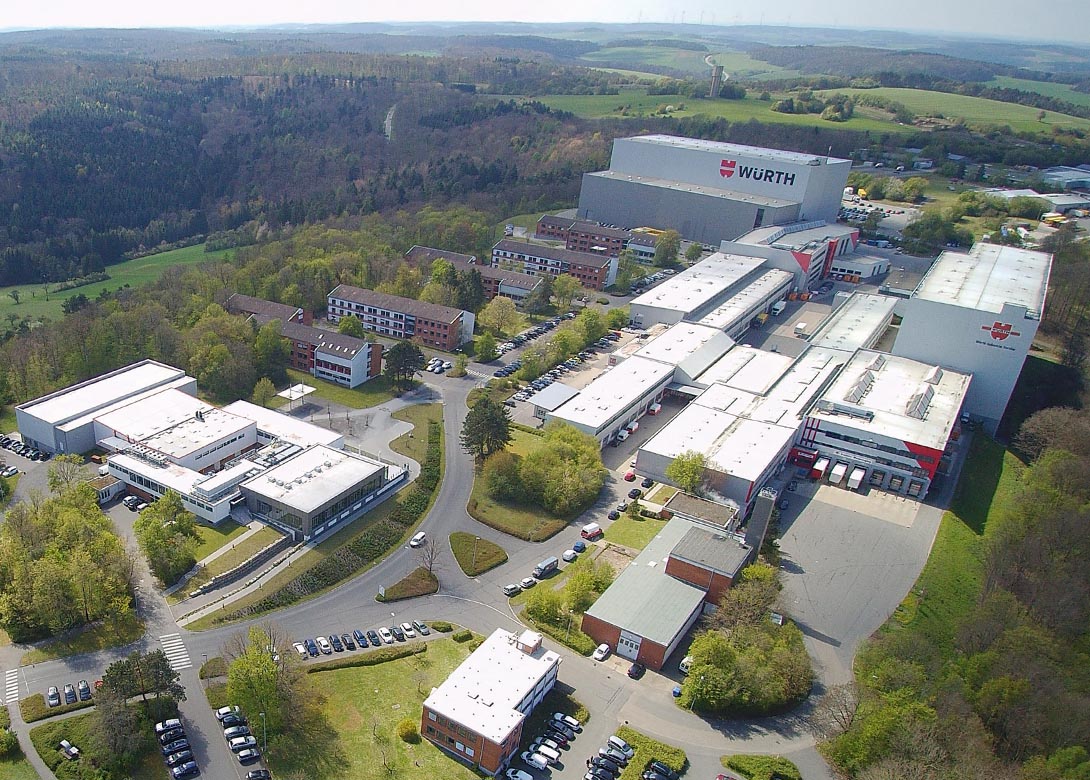
Here Editor Will Lowry speaks to Rainer Bürkert, general manager at Würth Industrie Service and executive vice-president of Würth Group, about how the company’s capabilities, services, and product range, enables it to compete at the forefront of the market.
Würth Industrie Service was founded in 1999. How does the company operate and what is its connection to the main Würth Group?
“Würth Industrie Service was founded as the subsidiary of Adolf Würth GmbH & Co KG and is part of the main Würth Group. Since 1999 we have built a worldwide network of industry companies, WINWORK (Würth Industrial NetWORK), which today includes more than 60 sites all around the world. This network, and the main purpose of Würth Industrie Service, serves industrial customers and supplies production, as well as maintenance and repair parts.
Whilst we are a separate company, being part of the Würth Group gives us a lot of added advantages. Würth Group is a world market leader in its core business, which is the sale of assembly and fastening materials. It currently consists of over 400 companies in more than 80 countries and has approximately 77,000 employees. Würth Group generated total sales of €14.27 billion in the business year 2019.
This means Würth Industrie Service has a lot of financial support behind us and that has been key in our development. I have been with Würth Group since 1991 and started working within the industry side in 1994 as head of internal sales for the division. I then had the chance to be involved in the start-up of Würth Industrie Service and have seen us grow and build our global network.”
What are the key factors that enable Würth Industrie Service to stand out from its competitors?
“There are several key factors that enable us to put ourselves at the forefront of the market. For instance, from the very beginning we have had one central logistics, based in Bad Mergentheim, Germany, that we use to supply customers in Germany and Europe. It is the most modern logistics centre for industrial supply in Europe.
Our central warehouse is 65,000m2 and it consists of 34km of conveyor belts, 190,000 automated pallet locations and a building structure to fit up to 640,000 fully automated shuttle locations. This warehouse is located within our 122 hectares site, which means we have almost unlimited chance to build up our logistics and gives us a huge opportunity in comparison to competitors. We use this central warehouse concept because our customers have plants all around Europe and they can never be sure how many parts they need at each plant. Therefore, it makes sense to have a central stock, as this is much more efficient than having stock all around Europe and possibly in the wrong locations. We also have this central logistics concept in Asia and the Americas and it is definitely one of the biggest competitive factors we have.
Another competitive factor is our international network of more than 60 companies. In my opinion we are the only company that is able to serve customers all around the world with the same service, same IT network and system, so customers can be confident they will get the same support wherever they approach us.
As well as our central warehouses and numerous industry sites, our in-depth product range is a big positive for us. Just out of Germany last year we delivered 1.25 million different articles to our customers and this is growing year-on-year. It is growing because customers have lots of requests for special and drawing parts, as well as stamping parts, which results in more than 52% of our product range being these type of specials.
Within the product range we also have the ability to not only supply fasteners and fixings, but also a full range of MRO parts, thanks to our relationship with the main Würth Group.
Finally, a big factor in our competiveness is the huge production backbone of the Würth Group, which includes a lot of knowledge and experience through our engineers. This means when our customers have a special demand for developing a product, we can also help them.”
 What are the customer oriented services you can provide?
What are the customer oriented services you can provide?
“We can provide all the necessary services to our customers and can react quickly to their changing demands. Each customer has their own set of ideas and processes and as a service provider we need to be able to meet these needs. That is why all our services have clear interfaces, with customers having the opportunity to connect and combine different services – resulting in every customer being able to build their own tailor-made service.
One particular service that has proved popular over recent years is the standardisation of products. Very often customers will have different article numbers across various manufacturing sites for the same product, which they don’t realise. We can offer a system where we are able to tell them how they can reduce the amount of article numbers, as well as reduce the amount of different platings, sizings, etc.
A prime example of this was from a few years ago when we had a customer approach us to standardise their range. They had 73,000 different articles but they knew there was some duplications. We put our team of engineers together and after working on the project we were able to reduce the number from 73,000 to 13,000 articles. This created a totally new picture for the customer on what they were purchasing and led to significant cost savings.
Whilst we are able to work with customers on reducing the number of articles, we are also able to work with them on developing new special articles if necessary. Firstly, we do work with the customer to see if we can provide the solution from one of the products they are already receiving. However, if that is not possible we can work with them on designing bespoke and special products. We are recognised in the market as a provider of this service and customers know they can have the complete solution from one source, so it is a popular service.”
What will be the long-term impact of Covid-19 on you as a business? How will you need to change/develop?
“The Covid-19 pandemic has undoubtedly hit a lot of markets very hard and I am sure there are going to be difficult times ahead for a lot of businesses. At Würth Industrie Service we are in a strong position and we also have the financial support of the main Würth Group if we were to need it going forward.
Thanks to our structure, and how we interact with customers, we will see little impact on how we do business. One of the big advantages for us is that through the use of our RFID and contactless Kanban systems, there is no big need for us to interact closely with customers. This has meant during the pandemic we have been able to reduce the personal contact to the minimum without reducing the service itself.
We have also seen that digitisation, which has been talked a lot about in the past, is now becoming a must have for the future. Working from home will become the new normal for a lot of the administrative parts of businesses. Companies can see it is working and productivity is not hurt by working from home. Obviously you cannot do this in the logistics, but here I believe there will be a move towards new procedures and automation. Again, thanks to our set-up we are already in a strong position regarding this development.
At the beginning of the outbreak we had customers contacting us and checking we had enough stock and if we would be able to cope if there was a problem with our suppliers. We were not only able to reassure them that we had enough stock and capacity, but also point out we could increase our stocks further if necessary – thanks to the space we have available.”
What drives innovation at Würth Industrie Service and where do you see opportunities for the future?
“Würth is at the forefront of innovation as a business and we are always looking at new opportunities. For instance, we already have a ‘3D printer farm’, where we can do a variety of samples for our customers. We have experienced engineers who can design the drawings for these printers and this helps us work alongside customers on any of their special needs.
I am sure this area will continue to grow in the future, but at the moment I cannot see it working for all production parts. It will be a special segment that customers can call on when they need us to help them with their solutions.
Another area of innovation for the future will be that more and more products will be handled electronically, with the systems of our customers connected to our systems. We already have Kanban and RFID technology in our customers’ sites and we can see vending machines becoming the next step – especially in the MRO sector. Most maintenance and repair departments are very often old fashioned workshops with spares and stock keeping units. With the current situation regarding Covid-19, handing out parts will become a thing of the past. Instead these types of parts and tools will be stored in vending machines with employees having to enter codes to access their correct products.
Another demand in the future will be the need for us to carry out data handling for our customers. A lot of the purchasers we work with today are not aware of the products they are ordering or the specifications/requirements, etc. The European Union is always developing new rules and laws that impact a wide variety of parts and this is where our data management/mining for customers will come in use. We will have all of this special data on file and will be able to provide all the answers to customers. I see this as a new market segment in the future and we are working hard on this.”

Will joined Fastener + Fixing Magazine in 2007 and over the last 15 years has experienced every facet of the fastener sector - interviewing key figures within the industry and visiting leading companies and exhibitions around the globe.
Will manages the content strategy across all platforms and is the guardian for the high editorial standards that the Magazine is renowned.
Don't have an account? Sign Up
Signing up to Fastener + Fixing Magazine enables you to manage your account details.